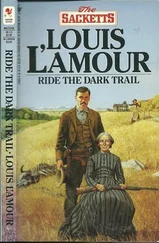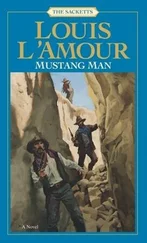"We can't budge her," Kohl said. "We broke a couple of capstan bars trying." Glancing at the stars he could see they still had several hours of darkness remaining, but the men were exhausted. He believed he knew what to do, but he would need rested men to do the work that lay ahead. Despite the fact that the fog was gone, that the coming of the patrol ship was imminent, there was but one thing to do. "Barney," he said, after a moment, "have everybody turn in and get some rest. I'll stand by the gun myself. I'll want two men to stand watch here at the ship; the rest to sleep until four a.m." "Lord knows they need the rest," Kohl said, "but what about the Susquehanna? The Lena will be along at daybreak."
"If she heaves her hook at daybreak it will take her all of three hours to get this far. I'll be standing by the gun. If you hear a shot, turn the men to and rig those shears as I told you. And send four men to me." Kohl put his cap back on his head and started to turn away, then stopped. "Cap'n," he said slowly, "I figured I was a better man than you, that I should be master of this ship, but believe me, I've learned better. You've pulled off things this trip that I'd never have tackled."
"Thanks, Barney."
LaBarge turned to Helena. "You'd better get some sleep. You'll need the rest."
"I'm coming with you."
"But, look--"
"I'm coming with you."
Together, they walked to the promontory where the gun had been placed, pointing its dark muzzle down the channel. The men arose as they approached. "Nothing yet, Cap'n."
"Turn in ... you'll be turning to again at four a.m." When they had gone he made a place for Helena between the trails of the gun, folding some blankets and placing them over a pile of evergreen boughs. When she was settled he lit his pipe and settled himself for the long hours of waiting. He was tired, but he forced himself to remain awake. Somewhere out in the forest a pine cone fell, and upon the water a fish jumped, while far over the trees a night bird called. The rest was silence and the darkness.
The earth was soft beneath him with a deep carpet of pine needles and damp from the fog. A vagrant wind stirred in the pines and he could hear the far-off rushing of wind, a strange, lonely, wonderful sound that is a part of every evergreen forest. He listened, liking it, and listened to the water along the rocks below. These were old sounds, familiar sounds. "It's a grand country," he said.
"I love it. I shall always love it."
"I've always lived close to the forest," he said. "I'm at home there. I like the wild lands."
Far-off in the forest a wind began. It had started somewhere in the pines along the rim of the world and it came down, awakening new ranks of trees to stirring life, moving the pine needles, brushing the arms of the spruce. It came down across Alaska and moved through the forests and then scattered itself among the coastal islands. It was a long, long wind and it was cold. The wind rustled the pines above Tenakee Inlet and talked among the trees over the manless beds of Hoonah village, then felt its way along the bare flanks of the Susquehanna, so unnaturally naked without the shielding water. Jean listened to the wind. "You'd better sleep," he told Helena, "we're going to have snow."
Chapter 26
Jean came sharply awake, aware instantly that something had happened. Snow was falling gently and steadily through the pines, but it was not this that had disturbed him. Silently, so as not to awaken Helena, he got to his feet and rubbed his legs to restore the circulation.
When he could move quietly, he walked away from the gun and stood in a small opening in the forest, listening. There had been many such times when he waited in complete stillness, ears keyed to the slightest sound ... and now he heard it.
It came from, far off, but it was a noise not of the forest. The forest's sounds he had known since boyhood, and this was no murmur among the trees, this was the steady advance of a large number of men.
On still cold nights sound travels amazingly, and the men were several miles away. They were not Indians, for even a large body of Indians would not have been heard; these men were unaccustomed to travel at night in the forest. LaBarge quickly realized what the movement implied: Zinnovy was sure of taking the Susquehanna; men had been put ashore to prevent the escape of himself or his crew. Undoubtedly the Lena was now moving upstream and had landed these men to take up posts on shore. The attack was to be both by sea and by land, and there were to be no survivors.
It was the one thing he had not anticipated, for which he had no plan, and he must move swiftly. An attack now, on the ground, could immobilize the Susquehanna and prevent further movement. From the trees his men could be picked off at will as they worked.
He went quickly to the gun and, stooping, touched Helena's shoulder. She opened her eyes at once, completely aware. He explained quickly. "We must go back now, and we must hurry!"
She was on her feet, straightening her clothing. "You go. I'll stay. The Lena may come in sight while you are gone and I could fire the cannon. It might stop her."
"You? Fire a cannon?"
She laughed at him. "You forget, Jean. I am a daughter of the Romanoffs, and Honorary Colonel of a regiment of artillery. Several times I have fired salutes with cannon. Is it loaded?"
"Yes."
"Then all I must do is get on the target and pull the lanyard."
He hesitated. "All right, but when the men arrive, you come back. Do you hear?"
She came to attention and saluted. "Yes, Commander! I return at once!" Jean LaBarge plunged through the brush toward the now-dying fire. Quickly, he shook Kohl awake. The alerted guards awakened the crew and the Indians. "They'll make a reconnaissance first. When they get close they'll hear the sounds of our work party and send men in to find out what is happening. My guess is that Zinnovy stayed aboard, in which case before they launch an attack they'll communicate with him."
Even with the Indians they would be outnumbered. If the patrol ship reached the head of the inlet before the Susquehanna could be launched it could blow the schooner to fragments. Nor did they have men enough to protect the gun from shore attack, although the gun was their only hope to slow the approach of the Lena.
How many men had been landed they could not guess, but it was likely that the number exceeded their own.
"We've one chance and one only," LaBarge told them after a moment. "We've got to get the schooner into the water and get the hell out of here. Kohl, take twelve men and get those poles sunk into the ground, make a shears of them, and get the rigging in place. If we can grasshopper her over the hump the rest will be easy."
LaBarge had previously explained the process to Kohl, who had never seen it done. Two long poles, as long as the masts of the ship and heavier, were hastily dragged from their resting places and holes were sunk just ahead of the schooner's bow and almost at the crest of the slight rise. The tackle was rigged and the men manned the capstan. Jean took six of the Tlingit warriors to the gun's position, and Katlecht took another twelve into the forest to intercept the landing party.
Leaving two men with the gun, Jean took the other four and moved up through the forest to aid Katlecht. The gun crew had already relieved Helena and she had returned to stand by the Susquehanna.
For a moment there was silence. At the crest of a small rise in the forest, a position that enabled them to look down various lanes between the trees, LaBarge and his Tlingits silently waited the approaching party. Only yards away was Katlecht with his group, scattering across the front and down the flank of the Russians. From behind him LaBarge could hear the hammer blows of the working men.
Читать дальше












